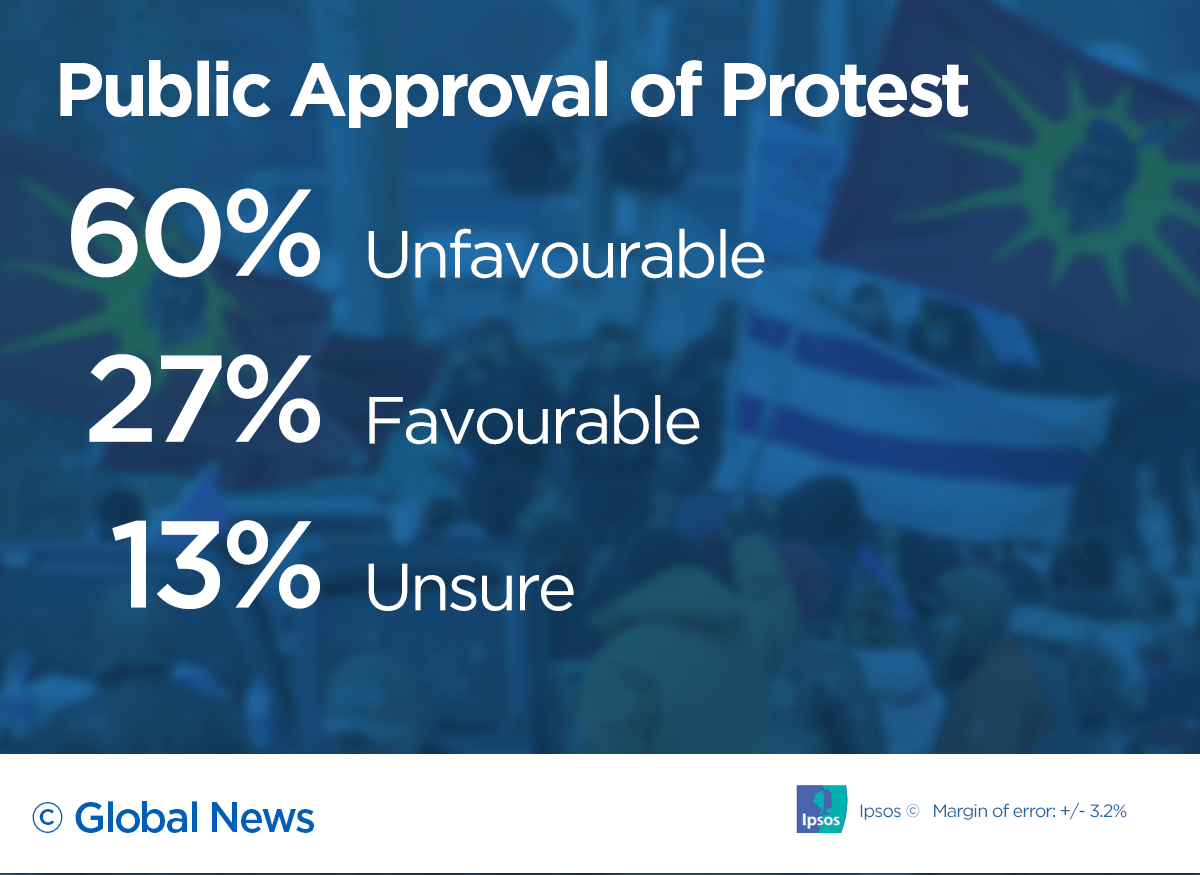There’s been copious amounts of expert commentary over the last couple of weeks about what Canadians think regarding Indigenous reconciliation and blockades.

Unfortunately, little of it reflects what Canadians actually think, but mostly what editorialists and advocates want them to. What the polling Ipsos has done for Global News shows about public opinion on these issues is that it is both complicated and counterintuitive.
Let’s start with politics.
The assumption in much of the commentary is that this is a highly political issue that must be affecting the prime minister’s reputation with Canadians. As it turns out, though, not so much.
In spite of considerable movement on the substantive issues, Prime Minister Justin Trudeau’s personal approval numbers have barely budged — they are down only two percentage points since our last poll.
Granted, his approval numbers aren’t strong — only 43 per cent approve of his performance today — but this hasn’t weakened much over the last two weeks.
What this shows is that for most Canadians, this dispute is less about politics and more about the substance of the issues themselves.
If this is about the substance of the issues, how do Canadians come down on Indigenous reconciliation versus the blockades? The surveys show Canadians do not have consistent opinions.

Get breaking National news
They both support Indigenous reconciliation and oppose the blockades. How can this be? It’s because, for most Canadians, it is possible and reasonable to hold both opinions.
For them, there is no contradiction. What’s most clear, though, is that every day the protests are seen as being less about Indigenous reconciliation and more about law and order. And the gap grows bigger by the week.
Opposition to the blockades has grown by 11 percentage points to 60 per cent over the last week. A majority (63 per cent, up 10 points) now also support the police intervening to end the blockades, a perspective that’s rapidly becoming the public consensus. A rarity these days, this opinion is also consistent from coast to coast.
For anyone who has been through this before (Oka, Idle No More), it’s clear where public opinion goes. The more disruption there is, the less interest there will be in a productive dialogue about reconciliation. This is a shame because Canadians have come a long way on these issues and the opportunity for real progress has never been stronger.
For the sake of meaningful dialogue, this needs to get resolved quickly so a productive conversation can start again.
Finally, while Canadians may not be viewing this issue through a political lens today, experience has shown this is unlikely to last. Maintaining public order is a primary responsibility for any government.
If the Trudeau government, as well as any provincial government that’s affected, isn’t able to get the situation under control in short order, voters are unlikely to be forgiving the next time they go to the ballot box.
Darrell Bricker is Global CEO, Ipsos Public Affairs
—
METHODOLOGY: This Ipsos poll was conducted between Feb. 21 and Feb. 24, 2020. For this survey, a sample of 1,300 Canadians aged 18+ was interviewed online. Quotas and weighting were employed to ensure that the sample’s composition reflects that of the Canadian population according to census parameters. The precision of Ipsos online polls is measured using a credibility interval. In this case, the poll is accurate to within ± 3.2 percentage points, 19 times out of 20, had all Canadians aged 18+ been polled. The credibility interval will be wider among subsets of the population. All sample surveys and polls may be subject to other sources of error, including, but not limited to coverage error, and measurement error.



















Comments